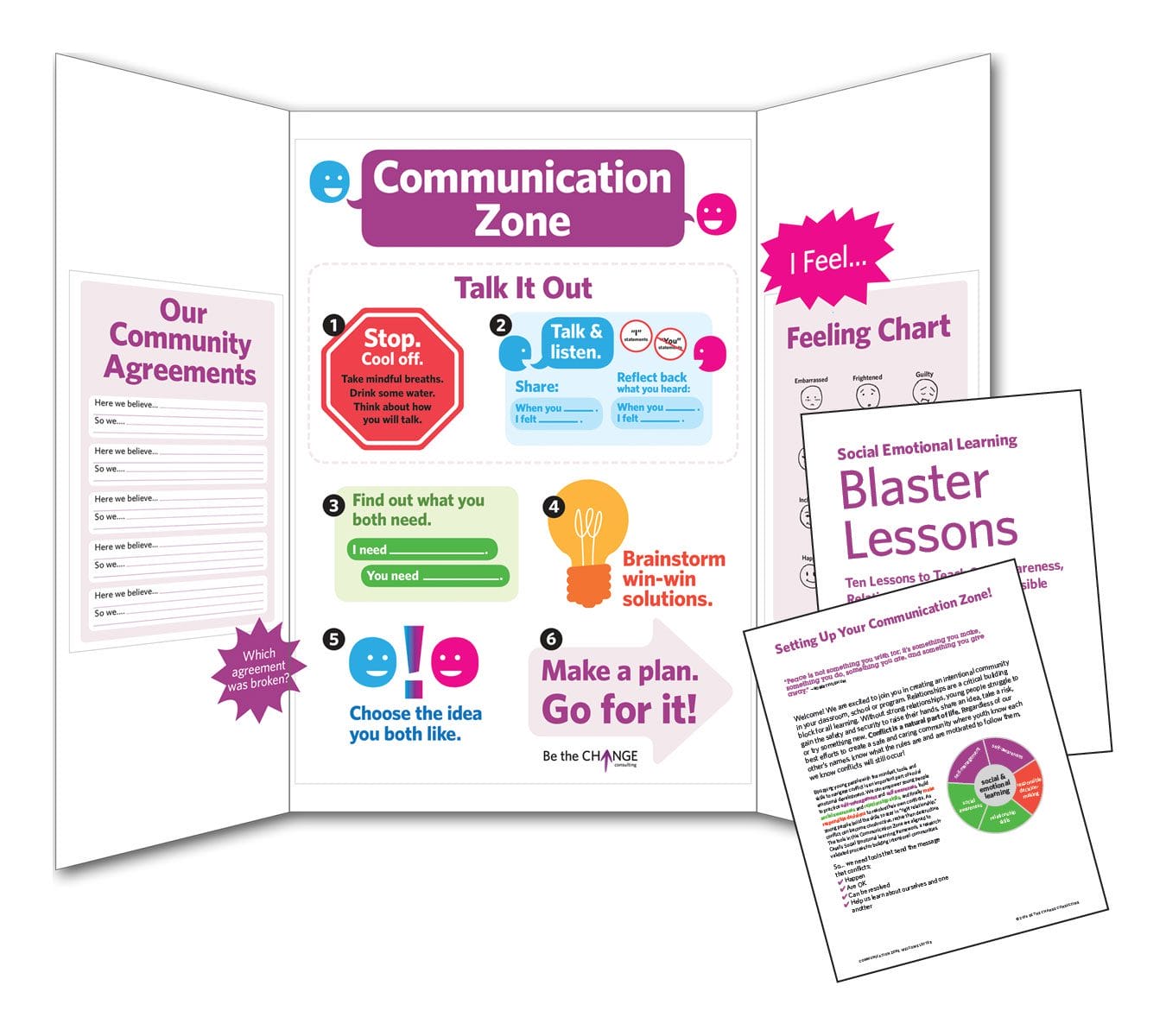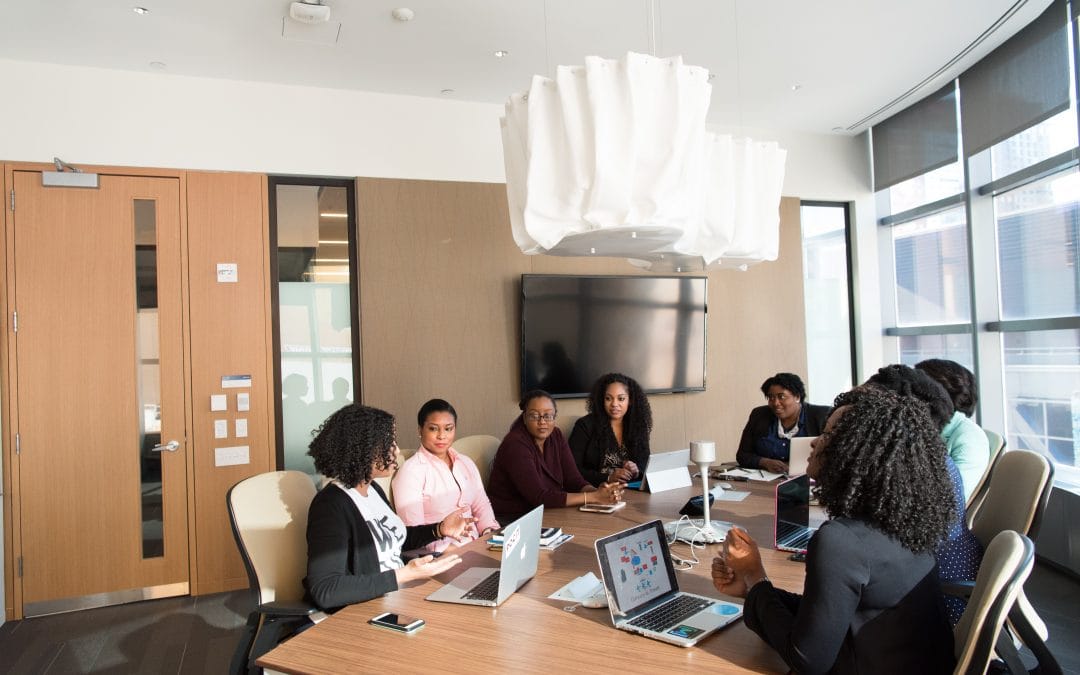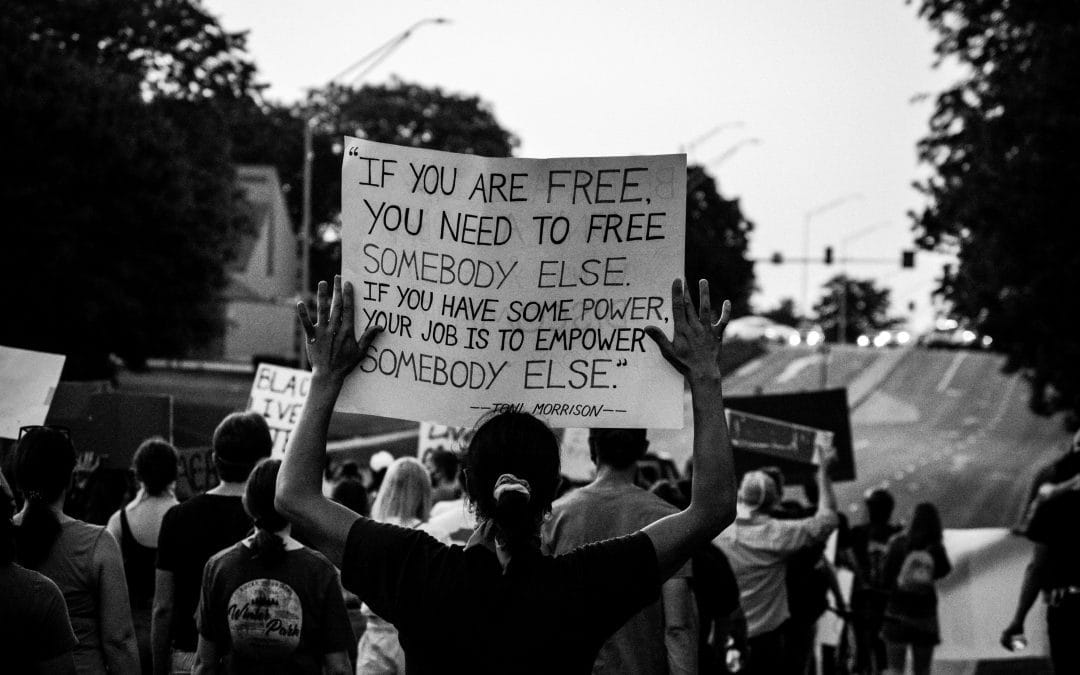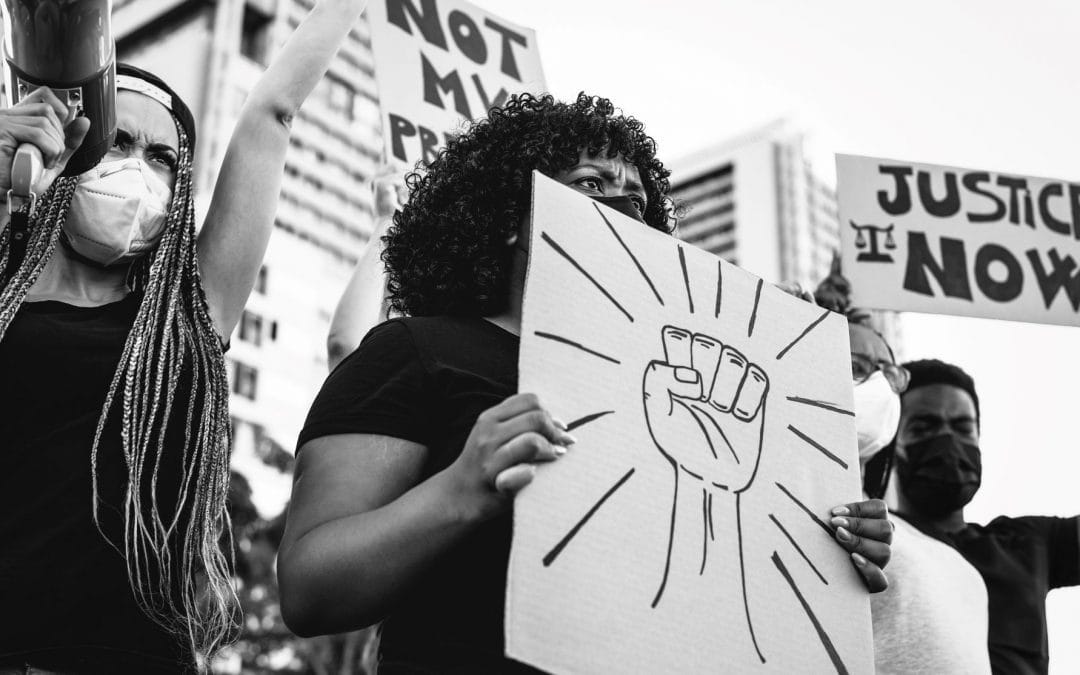When your students get into disagreements, and you intervene and instruct one student to apologize, do you stop to think about how the person receiving the apology feels? Did the apology feel sincere? What about the apologizer? Did they offer up a half-hearted apology because they thought it would help them avoid a talk from you or was it heartfelt?
Quickly de-escalating tensions between students makes sense as a short-term solution. However, down the road this may inadvertently lead to unresolved issues that resurface later.
We believe that you can structure an apology that allows all parties to heal and eliminate any lingering hurt and guilt.
Today, we’ll explore I Just Called to Say I’m Sorry, which teaches students how to apologize, forgive, and create restorative relationships.
Apologies Are Social-Emotional Learning Assets in the Classroom
I Just Called to Say I’m Sorry is one Social-Emotional Learning activity in a comprehensive, multifaceted curriculum guide that teaches students how to address conflict, keep relationships intact during and after an incident, understand the complex points-of-view of all parties, and recognize emotions within themselves and others.
We understand that conflict is inevitable and that’s why we teach kids that apologizing is a process, not a race. Rather than rush to apologize and move on, we embrace conflict as an opportunity to slow down and teach youth the steps (pause, breath, feel, connect, restore) to acknowledge the harm and to restore the relationship.
Social-Emotional Learning Teaches Students that They Can (And Should) Structure Feelings
As we mentioned earlier, an incomplete apology may result in unresolved feelings. Similarly, an insincere apology may further inflame the hurt party instead of acting as a balm because it doesn’t convincingly center them. An example of such a thoughtless apology is, “I’m sorry if my actions and words offended you.”
Using an SEL template to structure an apology may seem fake on the surface, but giving your students a formula to follow when they apologize will increase their chances of being wholeheartedly forgiven.
I Just Called to Say I’m Sorry is part of an overall Social-Emotional Learning curriculum based on the following three-pronged theory to transform conflict:
- Prevention – Helps kids to build their social and emotional intelligence, so they can identify their emotions, master their thoughts, and see the complexity of perceptions in any situation.
- Restoration – Helps youth to develop rituals and practices to maintain connections and relationships with others during and after conflict.
- Intervention – Teaches kids the skills to address conflict when it arises and to embrace it as an opportunity to learn about oneself and one’s peers, as well as to seek win-win solutions.
Before you begin, you will create a dedicated area in your classroom called the “Communication Zone” with equal seating around a table or equal-sized cushions to sit on the floor.
After setting up the Communication Zone, a designated safe space where students can work through conflicts, they take turns role playing as someone who wants to apologize for something they did but never resolved, and as someone who wants closure for an apology they never received.
The person apologizing constructs an apology using a template, which identifies their behavior through the prism of the other person’s feelings. In addition, the Social-Emotional Learning template gives the person who is apologizing the opportunity to anticipate future scenarios where they make more thoughtful and proactive decisions to avoid a conflict in the future.
After they’ve completed these exercises, students will understand that:
- The Communication Zone is a safe space where people can go to work out problems with people, reflect on their feelings, or write an apology letter.
- An apology is like rebuilding a bridge between people because it tells the other party that they’re sorry and want to be friends again.
Unlike a hasty apology that a student may offer up in class to avoid a stern discussion with a teacher, I Just Called to Say I’m Sorry goes to painstaking lengths to foster a safe environment of mutual respect and empathy where all parties can express themselves in a complete and authentic manner and begin the healing process.
The next time your students have a disagreement, instead of asking them to apologize to one another to quickly resolve the issue, use this Social-Emotional Learning activity and slow things down to give them the time and space they need to be heard, understood, to forgive, and be forgiven.










